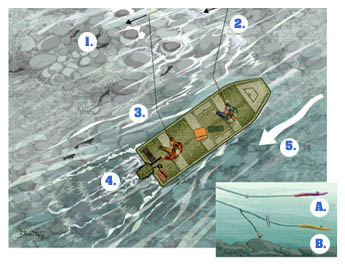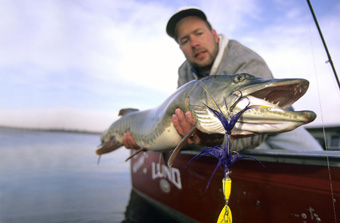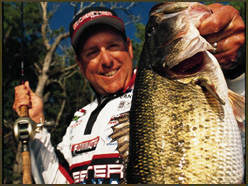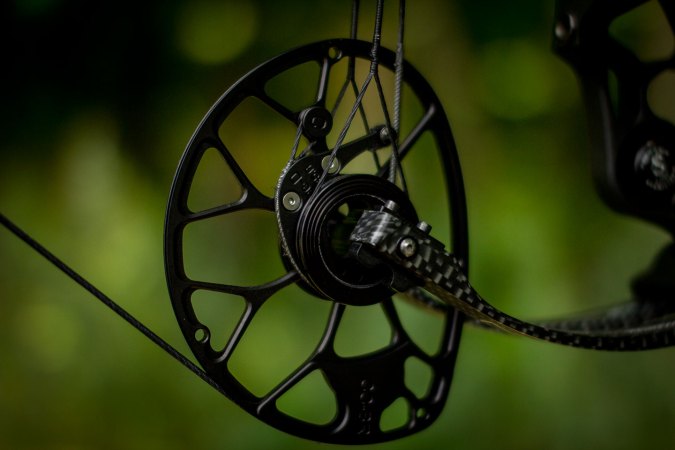We may earn revenue from the products available on this page and participate in affiliate programs. Learn More ›
There are a lot of fishy places where your mile-a-minute bass or walleye rig won’t fit, and even more these days where it just isn’t allowed. Many “no internal combustion motors” waters around the nation are loaded with fish–if only you could get at them. Invest a few bucks in a designated “pond boat” and you’re likely to open access to lots of water you’ve never fished before, and even better, water that very few others have fished, either.
Anything from an aluminum johnboat to a canoe, kayak or inflatable boat can function as a pond boat. We asked Spider Boats of Lead Hill, Ark., to supply us with a loaner to put together a serviceable, economical mini-boat with all the fishing amenities, but without the V6 on the back. Their Peenoe K-15 Sport Canoe proved ideal.
The 15-foot 11-inch, 150-pound hull flares at the chines, making it stand-up stable, even when an angler goes up front on the fly deck. It has an upswept bow and plenty of freeboard for those occasionally sloppy days, plus a very shallow draft to allow scooting across sandbars and downed timber to those secret hidey-holes. The Peenoe also has nicely thought-out storage, gunwale racks for six flyrods (including protective tubes for the tips), two padded swivel seats, a center livewell, a power panel at the bow and a bilge pump aft.
We added a Minn Kota bow-mount PowerDrive 55 troller up front, using plywood to flatten the mounting surface on the upswept bow. With a 15-foot power cord, the “fly-by-wire” troller allowed easy operation from either the stern or the bow seat of the Peenoe. Aft, a transom mount Minn Kota Maxxum 55 provided push going to and from fishing spots–top speed was about 3.8 mph, according to my GPS. Each motor operated from a separate gel-cell battery.
Our Garmin Fishfinder 80 hooked directly into the transducer in the lower unit of the Minn Kota at the bow. This gave interference-free readings, even with the troller winding along at top speed. The finder has a very small footprint, and I mounted it up front so that it could be seen from either seat.
Total weight of the rig, including batteries, trollers and other equipment, was around 300 pounds–too much to lift in and out of a pickup, but easily trailered by the smallest compact vehicle with an inexpensive Class 1 hitch.
The Peenoe with Kevlar hull, swivel seats, running lights and bilge pump goes for around $2,200. We spent an additional $800 on trolling motors and $300 for a pair of gel-cell batteries. The Garmin 80 is around $100. The 500-pound-capacity trailer goes for about $550. I also added a Minn Kota 18-inch extension handle to the transom troller for about $20. So, the total investment added up to around $4,000. The rig, including trailer tongue, is about 18 feet long, which should allow it to fit in most garages. For Peenoe details, call 870-436-2723 or visit www.spiderboats.com.
EASY-TO-SWAP HITCH BALLS
If you tow a bass boat and a pond rig, chances are you’ll need both a 2-inch and a 1 7/8-inch hitch ball. The Fulton Interchangeable Ball System allows you to change the ball without wrenches; you simply use a coin to back off on a screw, remove one ball, pop on the other and tighten the screw again. (About $33; 717-693-1700; www.fultonperformance.com)




